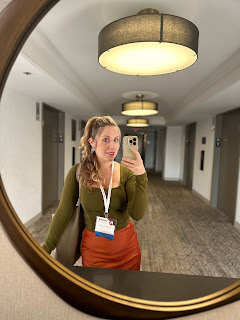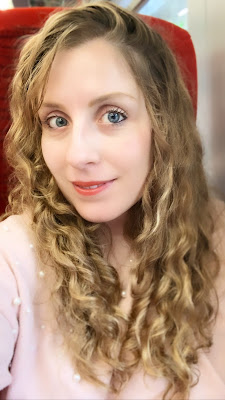Welcome back, everyone! It took over a month after the close of the Historical Novel Society North America Society conference in San Antonio, Texas, for me to finish listening to all the recordings—a testament to the wealth of great information about historical fiction on offer. I already published Part 1 and Part 2 posts detailing some of my favorite quotes from the event. Today, I’m concluding the series with a third and final roundup.
 |
| On the ground at #HNS2023! |
Writing craft:
“Don’t die on the hill of being right. If a word sounds modern, even if it isn’t, it ruins the illusion,” Annette Lyon (writer)
“If the structure of your novel is like layers of cake, your characters are the filling and the frosting,” Robin Henry (librarian & book coach)
“Backstory is summary. Flashback is scene,” Sophfronia Scott (writer)
“I always have a big outline that I’m really proud of and I never stick with it,” Elise Hooper (writer)
“Don’t cling to a mistake just because you spent a long time making it,” Patricia Hudson (writer)
“Don’t base your revisions on one person’s point of view. Wait until you hear a couple of people saying the same thing. You’ll see patterns,” Joy Calloway (writer)
Fictionalizing history:
“Never let the truth get in the way of a great story,” Lisa Wingate (writer)
“For me the fiction is what happens around the facts,” Madeline Martin (writer)
“If we can’t entertain, the history part will fall on deaf ears,” Margaret George (writer)
“We are translating past events with the present in mind,” Marianne Monson (writer)
“Look to what’s known and apply it to what isn’t known,” Judith Starkston (writer)
Marketing:
“I am primarily using social media to pull readers off the social media platforms and onto my mailing list, which is the only thing I control,” Laura Morelli (writer)
“There are stores that don’t want to stock books unless they’re big on TikTok, which is alarming,” Crystal King (writer)
“There are zero barriers to entry for podcasting,” Carol Cram (writer)
“Have beta readers for your website, just like you would for your book,” Tema Frank (writer)
Characters:
“When you want to include historically underrepresented characters in your book, my question is why are they important to your story,” Denny S. Bryce (writer)
“The reason I choose not to write real characters is because I want creative freedom to deviate from what really happened and send them where I want them to go,” Meredith Jaeger (writer)
“What would your character do if they have five minutes left to live?” Alana White (writer)
Religion in fiction:
“If you have very strong orthodox, pure adherence to your own faith, it’s going to be very difficult to write about another faith, especially if you believe that your faith is the only way to get to heaven,” Nicole Evelina (writer)
Did we meet at HNSNA 2023? I’d love to stay in touch! Sign up to my monthly newsletter here. Alternatively, tweet @SVictorianist or contact me via Instagram or Facebook.







